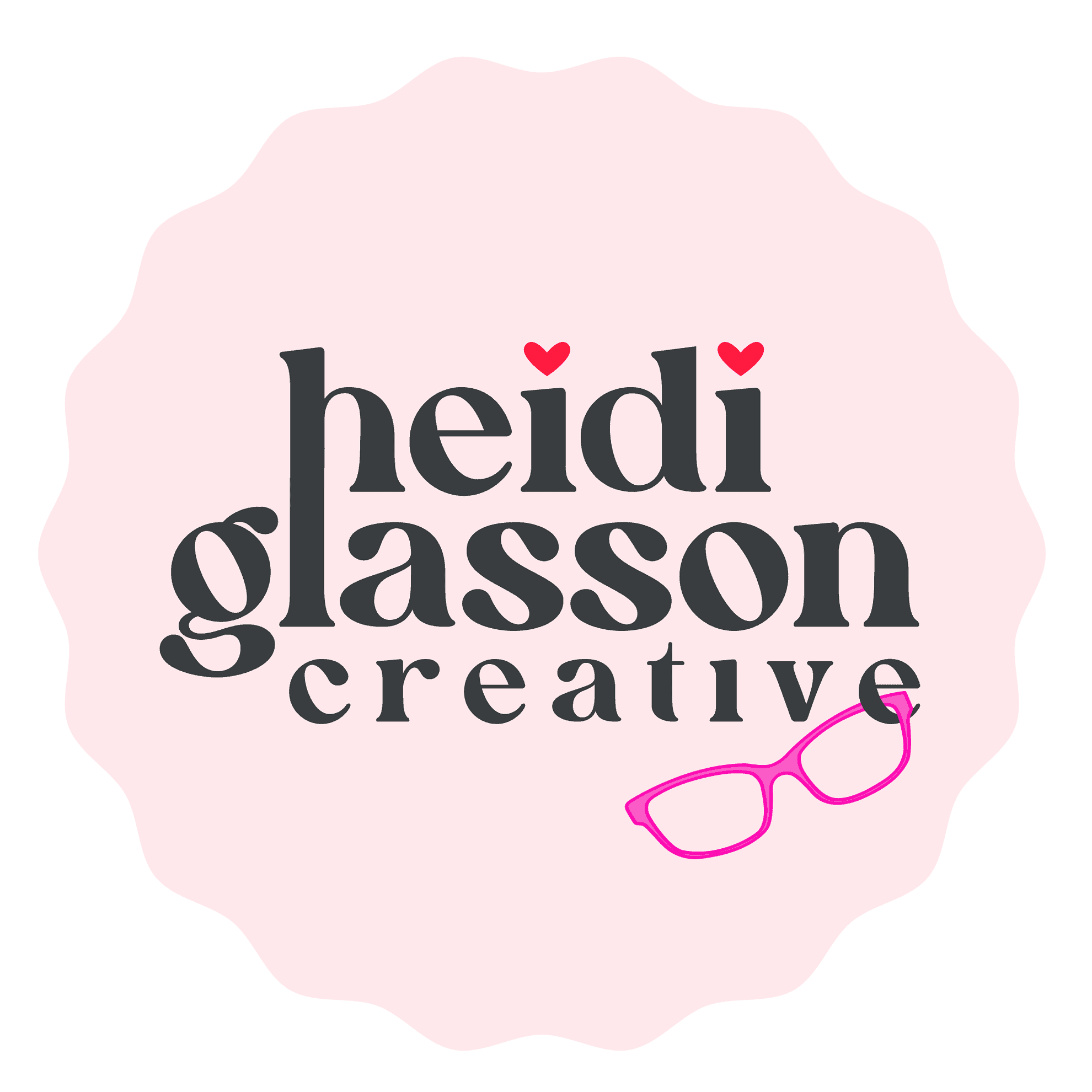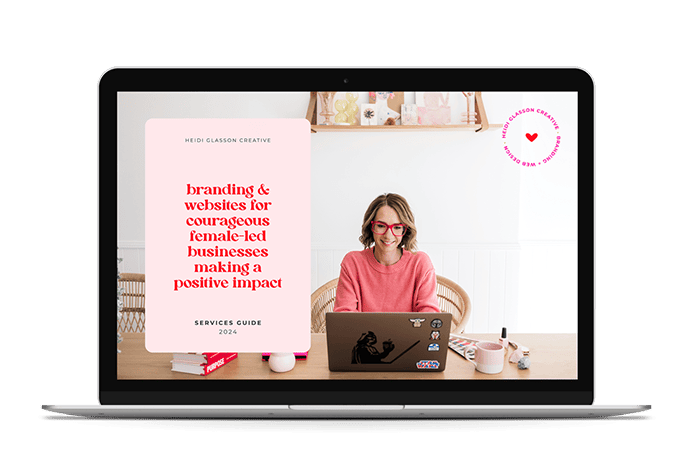I’d like to start this post with a little story time. The year was 2013 and I was building a little freelance side hustle to my 9-5 design job. I was working in publishing and all of my experience was in the print side of design, however this didn’t stop me thinking that I could totally build my own website (because it’s in our nature as entrepreneurs to try and do everything ourselves). I watched a bunch of youtube videos and fumbled about getting a domain and web hosting, choosing a WordPress theme on Themeforest and somehow applying it successfully to my website.
Now this was a success for my fledgling little business at the time. I had created a website for barely any $, despite having no idea what I was doing and I thought it looked pretty professional (let’s just say I’m glad it doesn’t exist anymore so I don’t have to see it 🤪).
But now that I design and build websites for a living, there are so many things that I realise I would have missed (because you don’t know what you don’t know). Things that make a website successful or not as a marketing tool to gain more clients or make sales. So if you’re going it alone, I’ve compiled a list of a few things that are important to consider and ensure you have on your website.
Make sure it is easy to edit.
Websites are not static and should constantly be evolving. When I was doing it myself 10 years ago, I’d leave it months in between adding content, then couldn’t even remember how to make the updates! I now build my WordPress websites with Divi – a super easy-to-use website builder which makes working with WordPress a breeze (I wish I’d known about it earlier!)
Ensure you have professionally written copy which is optimised for SEO.
Do you have a list of SEO keywords? Do you even like writing copy? It can be really hard to write copy for yourself, particularly ensuring you weave in the those important SEO keywords. As part of my website design packages now I offer professionally written copy which is so important in selling your product/service and converting your website visitors into paying clients.
Include a freebie which allows your visitors to opt-in to your mailing list.
Most people are never going to sign up to your newsletter (our inboxes are generally already out of control) but you can entice them to join your mailing list with a well designed freebie. This might be a checklist or a workbook – something related to your service which gives them a taste of what you do, who you are and if they may want to purchase from you. It also allows you to then follow up with additionally content, freebies and offers.
Include a blog page.
I’ve said this before and I’ll say it again. Blogs are coming back! And they’re such a great addition for your website – they help with SEO and they give you another outlet to connect with your audience, show your expertise and promote your website.
Keep things consistent.
If you don’t come from a design background or if you haven’t had a full branding package designed for your business, it may be hard to ensure that your website has a consistent design and feel throughout. Some things to consider are: fonts (heading and body fonts, sizes and weights), colour palette (main colours, call to action or hover colours, background colours), imagery style, plus the various key website elements: menus, buttons and links, grids and layout, design style etc. There’s quite a few things to define and ensure they’re consistent on each page.
Include a Call to Action on each page.
Make it really easy for your visitors and direct them to what they should do next. E.g. download my price list, view my portfolio, read my case studies, view our timetable, book a discovery call, get in contact.
Connect with your visitors on a personal level.
One of the main reasons people will visit your site is to get a feel for who you are and if you’re someone they’d like to work with/purchase from. Your website gives you a chance to show who you are, where you’ve come from, your brand story, who you work well with and how you can help them. Make sure you include your story in a way that will allow your potential clients to connect and don’t forget to include photos of you. We’re visual people!
Ensure it is optimised for mobile and tablet.
I think it is probably pretty obvious that a lot of your website visitors are going to be checking out your site on their phone. It’s super important to ensure that the site functions just as well on mobile as it does on desktop.
Don’t forget about website maintenance.
If you have a WordPress website, it is important to ensure the backend is regularly updated (this includes WordPress updates, plug-in updates and theme updates), your content is backed-up on a regular basis and you have proper security installed. If these updates are left, your website can become glitchy and it leaves it more vulnerable to hackers. If you don’t know how to look after this (or you don’t have time to) you can hire a WP expert to look after this for you.
So with all that said – should you DYI it or hire a designer?
This may come down to your techy know-how and potentially your budget. It is definitely possible to build your own website with the huge range of website builders available, however hiring a designer/developer ensures your website looks professional in its design and functionality, and ultimately could be the difference in whether your potential clients decide to book with you or not.
Final tip. Who are you competitors? Take a look at their websites and see how yours stands up. What are they doing well?
If you have been considering building your own but you’re unsure where to begin (or you think you’d like to save a few grey hairs), get in contact with me. I have website packages to suit a range of budgets – check out my packages or email me
x





